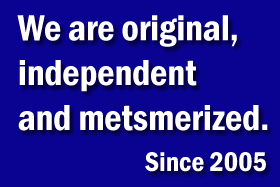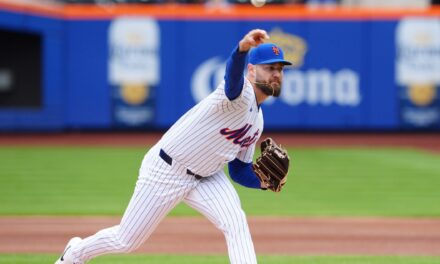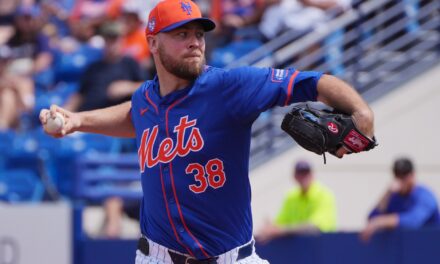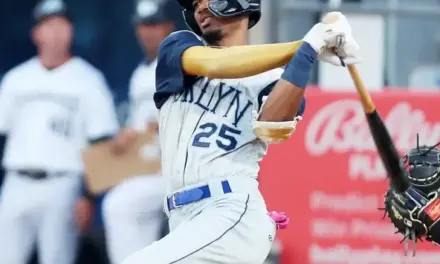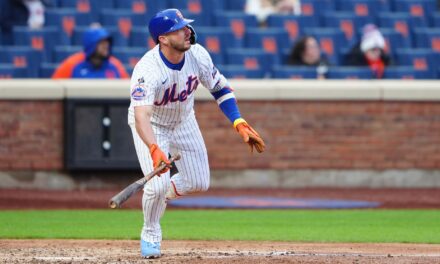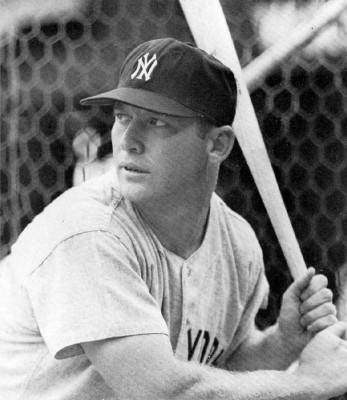
I’m not sure if it occurs in the first, second or third trimester. But some time while we’re in the womb, all Mets fans—actually all New Yorkers who are fans of NL Baseball—receive the gene that makes us hate the Yankees.
However, maybe once every generation, a player dons the pinstripes who we hate…but who we also kinda love.
My grandfather grew up in The Bronx but bled Dodger blue. He hated the Bronx Bombers–Except when it came to Joe DiMaggio. Ya just had to love The Yankee Clipper.
My dad was born in The Bronx and like his father, grew up in the shadow of Yankee Stadium. Like his dad, he also bled Dodger blue.
I, too, spent the first several years of my life close to The House That Ruth Built. I fell in love with Baseball in the early 70’s. As I studied the game’s glorious history and read about the three great center fielders who all played in NY during the 1950’s, I asked my father one day, “Dad, was Mickey Mantle better than Duke Snider?” He smirked. “Oh, please. Mickey couldn’t carry the Duke’s jock strap.” (I then asked my dad what a jock strap was.) But I could tell my dad was embellishing. The Duke was his favorite player as a young boy but…Mickey? Well, he was The Mick.
In the late 70s’, I watched the Mets struggling to avoid 100 losses while Reggie Jackson’s legend grew to mythical proportions. I hated Mr. October…but yea, ya kinda had to love the guy.
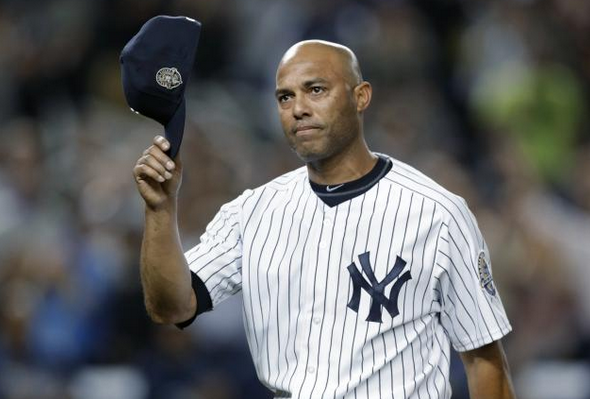
DiMaggio, Mickey, Reggie. Then came guys like Derek Jeter and Mariano Rivera. Yes, they were Yankees. Yes, they were good. And yes, we hated them. But at the same time, we kinda loved ‘em. We respected their ability.
Anytime we read a biography or autobiography, we hope to learn something about the individual. Get a feel for them. Get a sense that we know them. I recently read “The Closer” by Mariano Rivera, co-authored by Wayne Coffey. Sadly, after 265 pages, I knew nothing more about Mo than when I started. The book was a major letdown.
The first 65 pages or so were powerful, moving, and touching. Extremely personal as Mariano opened his heart and went into great detail. Born in Panama City, Panama, he grew up in Puerto Caimito, a small fishing village. He, his parents and three siblings lived in a 2-room cement house at the end of a dirt road. No electricity. No running water. They used an outhouse.
It’s hard to imagine that Baseball’s All-Time Saves leader and the greatest closer in post-season history, the fella who was always calm, cool and collected on the mound, was a bad kid. He dropped out of school in the ninth grade. His father, an alcoholic, abused him physically and verbally. He was nearly killed twice, once out at sea on his father’s fishing boat and a second time when a classmate chased him with a machete. Mariano Rivera, the guy who recorded 1,173 strikeouts in 1,283 IP, posted a career ERA of 2.21, a 13 time All-Star who holds the post-season record for saves (42) and lowest post-season ERA (0.70) hated math and didn’t have a head for numbers.
He expressed his feelings about being a young prospect in the Yankees system and living in a country where he didn’t speak the native language. The scene in which he described his initial tryout was extremely stirring.
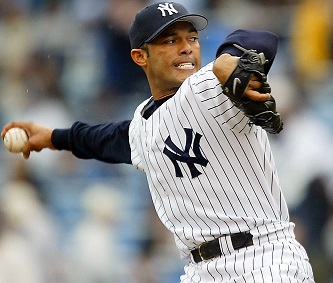
When he made the Yankees, his life changed. When he made the Yankees, the book changed, too.
Suddenly, by about page 65, the personal touch was gone. The book went from being an autobiography to a biography. It appeared written not by a guy who pitched for the Yankees for 19 years and won 5 championships but rather by an outsider, an observer.
Each chapter was a different season. However, it read not like a first-hand account, but rather like the Wikipedia page for the 1997 Yankees, 1998 Yankees, 1999 Yankees, and so on. Remote and detached.
Each chapter/season read like bullet-points without any emotion:
“We started the season 8-3, then slumped in late April. We had a good May and early June, then hit a rough spot in late June. At the All-Star Break, we were 48-39, 2 games behind Boston. I had 21 saves and a 1.97 ERA. After the break, we went to the west coast and won 5 out of 8. But then we lost 4 of our next 6 against Detroit and Chicago.”
That’s not exact but you get the gist. The post-seasons were written with the same isolated, disconnected style.
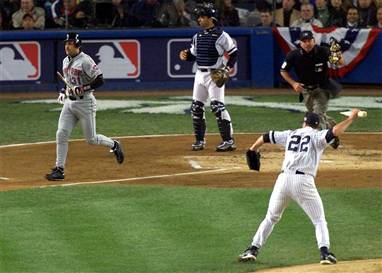
If you’re a Yankees or Mets fan, the 2000 World Series was special. It was the first subway series since 1956. It was the first time many of us experienced that. The city was spirted, energetic and alive. Yet, in “The Closer,” Mariano gave no more pages to defeating the crosstown Mets as he did to defeating the San Diego Padres.
Mariano spent his entire career in The Bronx. For many years he had the same teammates. However, he shares not one personal story, not one anecdote. I found that very peculiar. I wasn’t looking for a tell-all book, no juicy gossip. But he never allowed the reader an inside look at the Yankees on a personal level. He never shared a narrative about going to dinner with Derek Jeter. Maybe something funny Tino Martinez said during batting practice. Perhaps a story about shagging fly balls with Bernie Williams. Nope, nothing. Toward the end of the book, Mariano expresses his sadness when hearing his best friend, Jorge Posada, was retiring. Whoa, what? For 250 pages Mariano made no mention of having anything to do with Posada other than him being his catcher. The reader has no idea they are friends. Did they go to dinner often? Did their wives hang out? Did their kids play together? Who knows? We were never told anything about their friendship until they were going separate ways.
Joe Torre was manager for most of Mariano’s time in the Bronx. Yet, we’re told of only two conversations between them, both very short, both just one page. Longtime pitching coach Mel Stottlemyre is mentioned only once. George Steinbrenner, love him or hate him, is arguably the most charismatic, most controversial owner of the last half century. Yet, by reading this book, it seems like the owner and his legendary closer were virtual strangers. We’re told of one brief conversation during the 2000 World Series that lasted three paragraphs. That’s it.
“The Closer” is also, in my opinion, over-the-top in political correctness. Mo pitched from 1995 through 2013, the height of the steroid era. Yet, he never really discussed his thoughts other than basically saying, “Cheating is bad.” He never allows us a sense of what he was feeling, what he was thinking. Mariano glosses over the infamous incident between Roger Clemens and Mike Piazza. For the most part he never shares his insight about the time when Don Zimmer charged the mound and was brushed aside by Pedro Martinez.
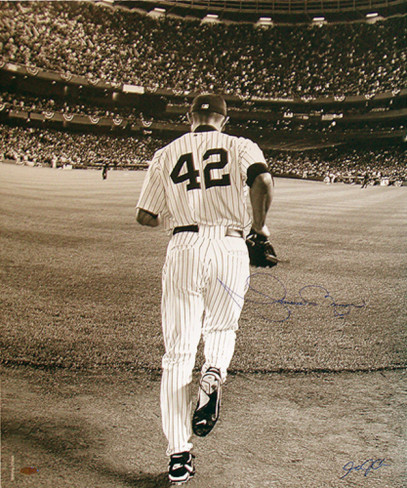
What was it like when he passed Trevor Hoffman as All-Time Saves Leader? What did it feel like to walk through the bullpen gate to “Enter Sandman”? What goes through your head when you’re on the mound for the final out after winning a World Series? On the flip side, what did it feel like when Luis Gonzalez came through in Game 7? Perhaps strangest of all was that when Boston became the first team to come back from down 0-3 and shock the Yankees, this historic comeback was completely omitted from “The Closer.”
One final thing—and I’m going to tread lightly here—is the religious aspect of the book. I was unaware of the degree faith played in Mariano’s life. That was eye-opening to me. But, at times, it felt like I was, no pun intended, being preached to.
Approximately every 8-12 pages, the story comes to a halt so Mariano can explain what role his faith played in regards to a particular event: injuries, the cut-fastball, an altercation with an irate fan. Everything that happened in his life is part of a Master Plan. If something good happened to Mariano, he is blessed. If something bad happened, it was the Lord’s way of teaching him a lesson in humility. I applaud the man’s faith, but if you choose to read this, keep that in mind. I found “The Closer” not so much a book about a ballplayer who was very religious, but rather a very religious man who just happened to be a ballplayer.
I’ve read numerous books about Baseball and baseball players. This one, to me, was very weak and disappointing. If you want to read a good book about Baseball, I suggest any of the following:
Wait Till Next Year by Doris Kearns Goodwin
Out of my League by Dirk Hayhurst
Doc: A Memoir by Dwight Gooden
Pedro by Pedro Martinez
The Bad Guys Won by Jeff Pearlman
